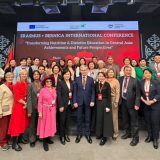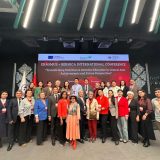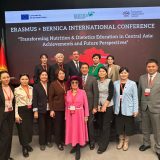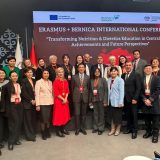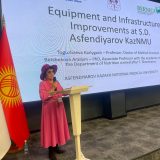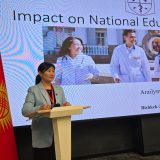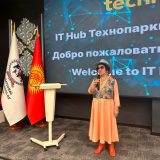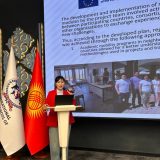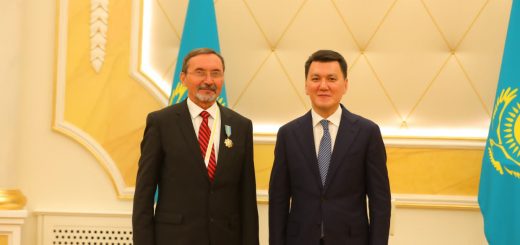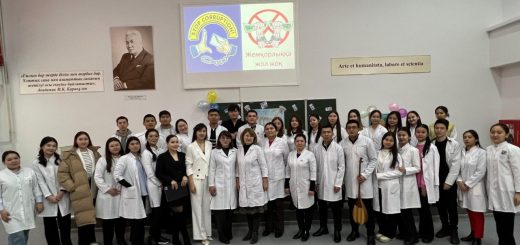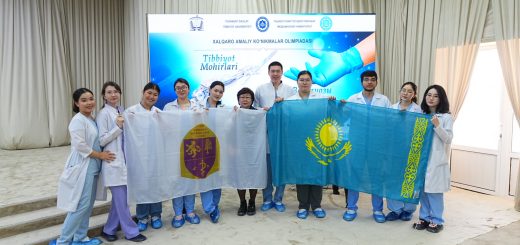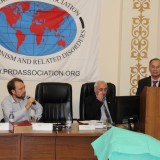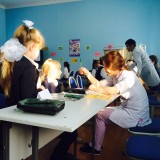A Key Milestone in the Development of Nutrition Education in Central Asia
On November 7–8, 2025, the International Higher School of Medicine (Bishkek) hosted the international conference “Transforming Nutrition & Dietetics Education in Central Asia: Achievements and Future Perspectives.” The event brought together representatives from eight countries — scientists, educators, government officials, and students — and marked the conclusion of the three-year BERNICA project (Building Educational and Research Nutrition Capacity in Central Asia), implemented with the support of the European Union’s Erasmus+ program.
The conference was attended by representatives of universities from Kazakhstan, Kyrgyzstan, Tajikistan, Uzbekistan, Austria, and Turkey, as well as officials from the Ministries of Health and Education of the region, National Erasmus+ Offices, students, and partners from academic and professional communities.
S.D. Asfendiyarov Kazakh National Medical University
was represented by the coordinator of the BERNICA project in the Republic of Kazakhstan, Doctor of Medical Sciences, Professor Karlygash Toguzbaeva, and PhD, Associate Professor of the Department of Nutrition named after Academician T. Sharmanov Arailym Beisbekova. Other project participants included Rabiga Khozhamkul, Dmitry Sokolov, Ainur Tekmanova, Elmira Kusayinova, Makhabbat Zhelderbaeva, and Lyaila Alekesheva.
Key Achievements of the Erasmus+/BERNICA Project
Presentations during the plenary and thematic sessions demonstrated the significant results of the project, which defined a new model for developing education in the field of nutrition and dietetics in Central Asia:
- Ten new academic courses (totaling 15 ECTS credits) were developed and implemented within three modules, fully aligned with Bologna requirements and the European Standards and Guidelines for Quality Assurance (ESG).
- A network of competence centers was established, and faculty development programs were conducted, including professional English and modern pedagogical methodologies.
- University infrastructure was upgraded — modern laboratories with innovative equipment, interactive classrooms, and digital platforms for distance and hybrid learning were introduced.
- Research activity among students and faculty increased, resulting in a large number of scientific works and presentations showcased at the conference.
Over two days, participants discussed key directions for the development of education and research in nutrition and dietetics.
Day 1 (November 7)
The first day was devoted to summarizing the results and evaluating the impact of the BERNICA project. Welcoming speeches were delivered by:
- Prof. Stalbek Akhunbaev, Rector of the International School of Medicine (Kyrgyzstan);
- Dr. Nurlan Omurov, Deputy Minister of Science, Higher Education, and Innovation of the Kyrgyz Republic;
- Dr. Bubuzhan Arykbaeva, Deputy Minister of Health of the Kyrgyz Republic;
- Representatives of the European Union and the National Erasmus+ Office in Kyrgyzstan.
Keynote presentations were delivered by Dr. Manuela Konrad (FH Joanneum, Austria) and Dr. Indrani Kalkan (Istanbul Medipol University, Turkey), who emphasized the importance of integrating nutrition and dietetics into medical education.
Day 2 (November 8)
The second day focused on discussions of quality assurance, sustainability, education policy, and digitalization, as well as the adoption of the conference resolution.
A key outcome was the endorsement of the Declaration on the Further Development of BERNICA, which outlined plans to continue network cooperation, develop new grant initiatives, and integrate project results into national strategies.
The Declaration was unanimously adopted and signed by Dr. Kenesh Jusupov, the project coordinator, and representatives of leading partner universities — FH Joanneum (Austria), Istanbul Medipol University (Turkey), S.D. Asfendiyarov Kazakh National Medical University, Karaganda Medical University, Tashkent Medical University, Bukhara State Medical Institute, Osh State University, Avicenna Tajik State Medical University, and Khatlon State Medical University, as well as by representatives of the Ministries of Education and Health of the Kyrgyz Republic and the National Erasmus+ Office.
BERNICA became the first regional platform for the systematic development of higher education in nutrition and dietetics in Central Asia.
Its results have already transformed approaches to professional training, laid the foundation for scientific research and innovation transfer, and promoted the harmonization of educational standards with the European Higher Education Area.
The Bishkek conference was not only a conclusion of a three-year project, but also a starting point for a new stage of cooperation. Participants reaffirmed their intention to maintain the established network, expand scientific initiatives, and continue working to improve the health and nutrition of the population across the region.



